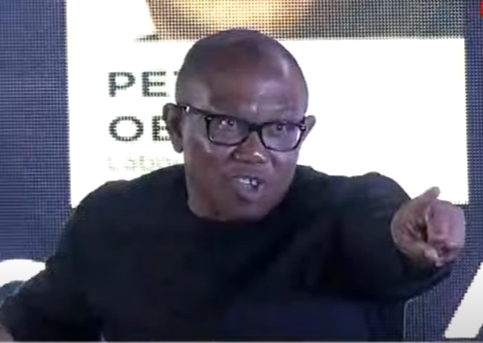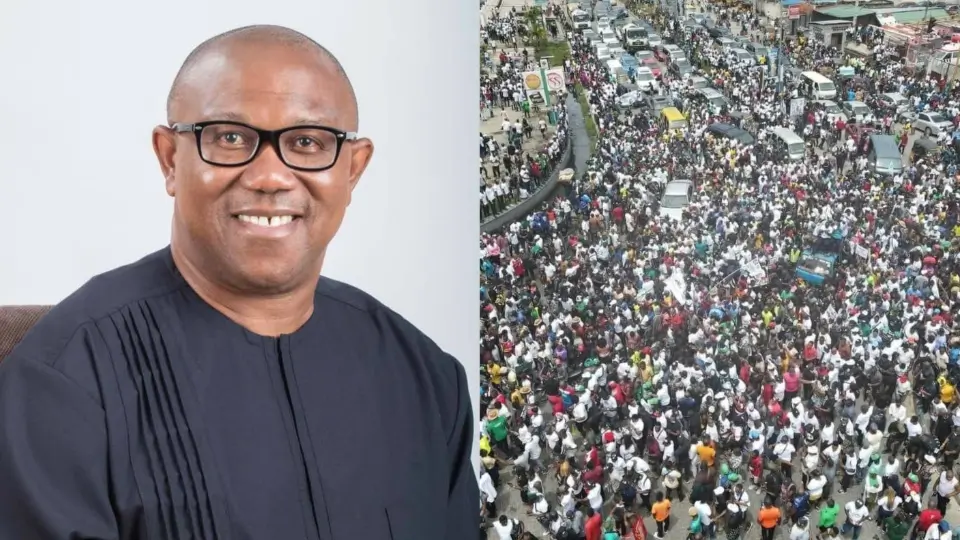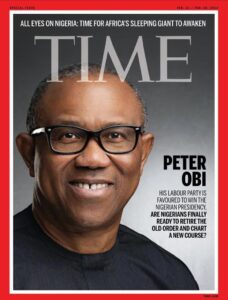
CURRENT REPORT BLOG in a recent interview with Peter Obi, the 2023 presidential candidate of the Labor Party and former governor of Anambra State, we delved into a wide range of topics, from economic policies to the state of the nation. Mr. Obi offered insightful perspectives on how he would have approached some of Nigeria’s key challenges differently. In this CURRENT REPORT BLOG post, we’ll explore Mr. Obi’s views on critical issues and the steps he would have taken to address them.
Question 1: Morning Show Host (MSH): Good morning, Mr. Peter Obi. Thank you for joining us today. In your recent address to the nation, you emphasized the possibility of a new Nigeria and rejected the idea that our situation is hopeless. Can you share how you’ve been lately and your thoughts on recent events, including legal cases and questions surrounding the president’s credentials?
Mr. Peter Obi (PO): Good morning, and thank you for having me. I remain positive about the future of Nigeria, as I mentioned in my address. The comments and concerns raised by both respected and less respected Nigerians underscore the urgency of building a new Nigeria where things are done correctly, truth is upheld, and laws are respected. Regarding recent events, I’ll address those as we continue.
Question 2: Morning Show Host (MSH) AriseTV: Thank you for that. Let’s shift to a pressing issue. The removal of fuel subsidies has generated significant debate and concerns. During your campaign, you referred to fuel subsidies as “organized crime” and pledged to remove them. Can you explain how you would have handled this differently, considering the impact on Nigerians and the recent threats of strikes by organized labor?
PO: Certainly. I’ve consistently referred to fuel subsidies as organized crime. To address this, I would have focused on eliminating the corruption and criminality associated with fuel subsidies first. By doing so, we would have reduced a significant portion of the subsidies. The remaining portion could have been phased out through an organized, transparent process, with the proceeds directed towards critical development areas like education, health, and poverty alleviation. Transparency in this process would help gain the trust of Nigerians.
Key Takeaway: Mr. Obi believes that tackling corruption and gradually phasing out fuel subsidies can lead to a more transparent and economically sustainable approach.
Question 3: MSH AriseTV: You’ve mentioned a step-by-step approach to addressing Nigeria’s economic challenges. Can you provide more details on your economic strategy? Specifically, how would you handle the issue of the Naira exchange rate, which has been under pressure and significantly devalued?
PO: To address the Naira exchange rate, we need a comprehensive approach. First, it’s essential to ensure an adequate supply of foreign exchange, as you can’t float a currency without sufficient supply. This involves promoting exports, managing reserves effectively, and addressing revenue leakages. Additionally, tackling corruption in the foreign exchange market is crucial.
Devaluation would be considered but managed cautiously. The key is to strike a balance between market forces and intervention while focusing on increasing export revenue. We must also discourage the unnecessary use of foreign currencies in our domestic economy, such as the use of dollars for transactions that should be conducted in Naira.
Key Takeaway: Mr. Obi advocates for a thoughtful and controlled devaluation while working on increasing export revenue and maintaining supply to stabilize the exchange rate.

Question 4: MSH AriseTV: You’ve raised concerns about the government’s palliative measures following the fuel subsidy removal, such as salary increases and cash transfers. What alternative measures would you propose to ameliorate the impact on Nigerians, particularly the most vulnerable?
PO: My concern with recent palliative measures is their temporary nature and lack of strategic planning. To address this, we need a more holistic approach that considers the scale of our challenges. Instead of short-term cash transfers, I would prioritize long-term economic policies that focus on job creation and poverty reduction. Investing in small and medium-sized enterprises (SMEs), improving infrastructure, and promoting education and healthcare access would be my priority areas.
Additionally, targeted financial support for micro and small businesses, coupled with efforts to reduce the cost of living, can have a more sustainable impact on Nigerians’ well-being.
Key Takeaway: Mr. Obi believes that long-term economic stimulus, particularly for SMEs, is essential for sustained economic recovery and job creation.
Question 5: MSH AriseTV: You mentioned the importance of leadership qualifications. Can you clarify what you mean by “right qualifications” for leaders in Nigeria? Are you suggesting stricter qualifications or a focus on integrity and competence?
PO: I want to emphasize that leadership qualifications are not limited to academic degrees. Instead, it’s about personal integrity, competence, and honesty. Leaders should have a strong moral compass and a commitment to transparency and accountability. The issue we face is not the lack of formal education but the erosion of values and the prevalence of dishonesty and corruption among leaders. We must focus on building a leadership culture rooted in integrity and the best interests of the nation.
Key Takeaway: Mr. Obi believes that leadership qualifications should primarily focus on integrity, character, and honesty rather than academic degrees.

MSH AriseTV: Finally, as we conclude, what specific steps would you take to address the security challenges in Nigeria and stimulate economic growth if you were in power today?
PO: Addressing security challenges in Nigeria would be a top priority. I would focus on improving intelligence gathering, equipping security forces, and addressing the root causes of insecurity. This includes job creation, education, and healthcare access to reduce vulnerability to extremist ideologies.
Economically, I would invest in critical infrastructure, support SMEs, and promote policies that encourage local production. By reducing corruption and revenue leakages, we can generate more funds for development projects. My goal would be to create an enabling environment for businesses to thrive, ultimately leading to job creation and economic growth.
Key Takeaway: Mr. Obi emphasized that resolving insecurity is the key to unlocking economic growth and reducing Nigeria’s budget deficit.
In this insightful interview, Mr. Peter Obi, the 2023 presidential candidate of the Labor Party and former governor of Anambra State, shared his perspectives on critical issues facing Nigeria. From addressing fuel subsidies to economic revitalization and leadership qualifications, Mr. Obi provided thoughtful insights into his vision for a better Nigeria.












